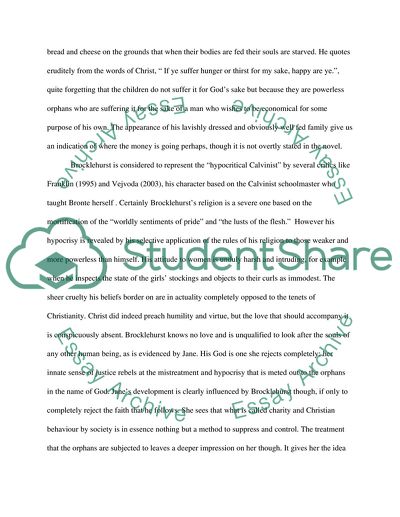Cite this document
(“The role of religion in the development of Jane Eyre Essay”, n.d.)
The role of religion in the development of Jane Eyre Essay. Retrieved from https://studentshare.org/literature/1536698-the-role-of-religion-in-the-development-of-jane-eyre
The role of religion in the development of Jane Eyre Essay. Retrieved from https://studentshare.org/literature/1536698-the-role-of-religion-in-the-development-of-jane-eyre
(The Role of Religion in the Development of Jane Eyre Essay)
The Role of Religion in the Development of Jane Eyre Essay. https://studentshare.org/literature/1536698-the-role-of-religion-in-the-development-of-jane-eyre.
The Role of Religion in the Development of Jane Eyre Essay. https://studentshare.org/literature/1536698-the-role-of-religion-in-the-development-of-jane-eyre.
“The Role of Religion in the Development of Jane Eyre Essay”, n.d. https://studentshare.org/literature/1536698-the-role-of-religion-in-the-development-of-jane-eyre.


